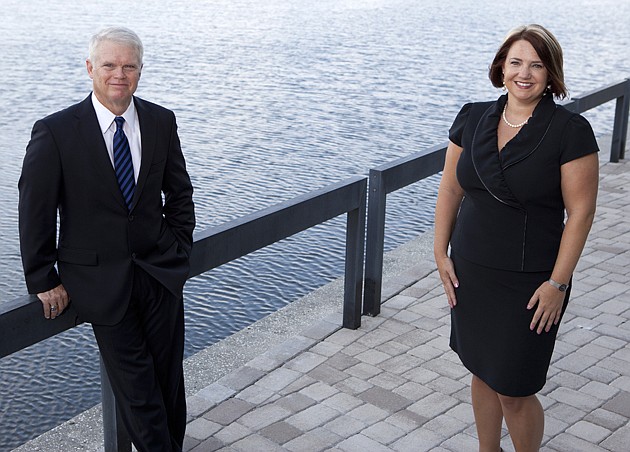Bill Hamm built a large and wildly growing business in the financial planning industry by being rosy while others were gloomy.
“We were willing to invest in bad times,” Hamm says, “because in my mind, that's the time to do it.”
The growth at Hamm's firm, Tampa-based Independent Financial Partners, certainly defies the recession, with bullets like 1,983% three-year revenue growth, from $1.2 million in 2009 to $25 million last year. The long-range plan, however, is to not only boost the bottom line, but also be in position to thrive in an industry going through regulatory upheaval. Indeed, IFP President Jennifer Tanck says size will be the company's biggest asset, regardless of what comes out of Washington, D.C.
“As the market changes, the little guys are being eaten up by the big guys,” Tanck says. “That's why it's important for us to scale. More regulations help us, because we are in a position to absorb it.”
The IFP absorption began with a multimillion-dollar investment in 2008, in the heart of the financial meltdown. IFP is a registered investment adviser firm, which means it's basically a risk-management and support group for a nationwide network of otherwise independent wealth managers and financial planners. IFP's revenues come from fees it charges the agents.
The investments Hamm oversaw, in everything from new employees to a $30,000 IT infrastructure upgrade, drove the firm's remarkable growth, starting with revenues.
Moreover, the company's financial advisers network, which spreads from Boston to Boise and reaches 40 states, has grown from 65 advisers in 2008 to 478 through August. The company added 45 advisers in the second quarter. More advisers means more internal employees, and the IFP Tampa-based payroll on that front has grown from six in 2008 to 30 today. Half of those employees work on regulatory and compliance issues.
Hamm recently set a goal for the firm to hit 1,000 advisers in the network within five years. Hamm, who has been in the financial planning industry for 30 years, bought the firm in 2000. “We are unique,” says Hamm. “Our approach is a little different.”
One key difference, according to IFP executives and other financial planners not affiliated with the firm, is the company is an industry hybrid: There are fee-based and commission-based financial planners in its network. That allows IFP to offer more options, for clients and advisers.
IFP advisers come from a variety of firms, including Edward Jones and Morgan Keegan & Co., which St. Petersburg-based Raymond James acquired earlier this year. Yet even though IFP seeks to rapidly expand its network, it's still picky. It seeks advisers who crave independence and have a track record of ethical behavior. Says Tanck: “We don't take everyone that wants to be part of our firm.”
Hamm and Tanck also say IFP's partnership with Boston-based LPL Financial Holdings, a $3.4 billion publicly traded brokerage service firm, is another key to recruiting and retaining top advisers. “It's not a cookie cutter way,” Hamm says. “It's not a one-size-fits-all way to doing business.”
This story has been updated to correct the IT investment IFP underwent, and that Hamm was not a co-founder of the firm.






